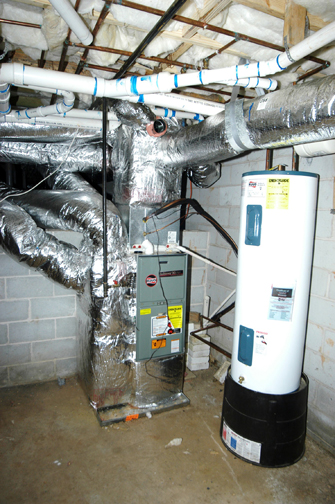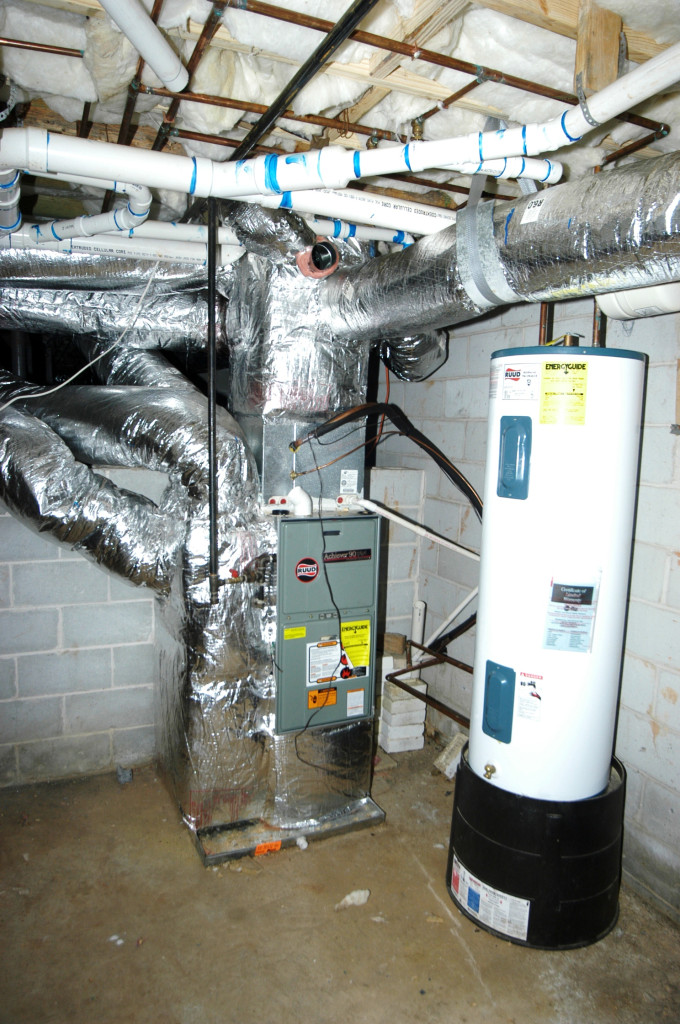
THE HOME INSPECTION PROCESS: Buyers and Sellers Have New Inspection Considerations
THE HOME INSPECTION PROCESS: Buyers and Sellers Have New Inspection Considerations
 Home buyers and home sellers have lots of options in the home inspection process. Even though I supervised construction of close to one hundred custom homes in my previous career as a home-builder, I now hire a home inspector to look over the houses I plan to purchase for investment.
Home buyers and home sellers have lots of options in the home inspection process. Even though I supervised construction of close to one hundred custom homes in my previous career as a home-builder, I now hire a home inspector to look over the houses I plan to purchase for investment.
Why would a seasoned real estate professional spend a couple hundred dollars to get someone else’s opinion about the condition of the property before purchase?
The answer to this and other questions about home inspections has a lot to do with the changing nature of real estate negotiations.
Most Home Sales Now Involve A Home Inspection
John Ghent, president of the American Society of Home Inspectors (ASHI), told Realty Times that “some 77 percent of all home sales in the United States last year involved a home inspection” (This according to a study performed on behalf of ASHI and the National Association of Realtors).
This large rate of sales involving home inspections is a relatively recent phenomenon in the real estate business. In the past, most homeowners purchased and/or sold a home in a transaction where no home inspector was ever involved.
Now, it appears probable that most current and future homeowners will have a home inspector involved in their next sale or purchase of a home.
Face to Face Negotiations Out, Disclosure Statements and Inspections In
In the old days, buyers and sellers often met face-to-face in order to discuss the condition of a home. Today, Sellers Disclosure Statements and home inspectors have become the mode of communication between buyers and sellers.
The old cold war strategy of “trust – but verify” has become the accepted means of determining the condition of a home. In today’s real estate market, actual sales negotiations continue way past the point where the sales contract is signed, remaining open until the last document is signed at closing.
And, a major area of negotiation is the inspection contingency. Sellers routinely declare their home to be perfect and 100% free of defects. And, buyers routinely obtain home inspection reports that list dozens of defects in what most folks would otherwise consider a well-built home.
The end result of the home inspection negotiation usually has a lot to do with the strength of the real estate market in the sub-market where the home is located.
Buyers Market Gives Upper Hand to Repairs
In a strong buyer’s market, a seller may be more than willing to do the majority of items on the “request for repairs” list and move on to closing. Sellers in tough real estate markets are also usually willing to settle on a dollar amount for the repairs and then have the sales price reduced by that amount. This gives the buyer an opportunity to hire their own contractors, or just live with the defect.
Strong Sellers Markets Mean Few Repairs
If we are in a strong seller’s market, sellers might receive a lengthy home inspection contingency request for repairs from the buyer; and then tell the buyer to go pound sand. They likely won’t plan to do any of the requested repairs or maintenance. Buyers should still do a home inspection so they know what the future costs of home ownership will be in the area of maintenance and capital improvements to their new home.
What Is Included In Most Home Inspections?
Understanding the important role a home inspection can play in a real estate negotiation, it is also important to understand what is included in a home inspection. US Inspect, an organization for the home inspector’s industry, lists the following areas that should be covered in a home inspection, on their useful website:
“heating system, central air conditioning system, interior plumbing, electrical system, roof, attic space, visible insulation, the walls, ceilings, floors, doors, windows, basement or crawlspace area, and the foundation and all structural components. …finally a check of the entire property is made to verify the condition of the property…”
Home Inspection Report
Once the inspection is complete, the home inspector submits a written report of all findings, specifically including a list of all deficiencies and recommendations for repair or maintenance.
Some areas of the inspection may raise a concern to the inspector; but an actual finding of deficiency may be beyond his/her professional abilities. At this point, the inspector should make a written report that the item in question should be inspected further by a qualified specialist. Specialists can include licensed electricians, HVAC technicians, plumbers, structural engineers, licensed roofing companies, and a myriad of others.
It is important to know that home inspectors can’t verify that all is 100% well with a house. Things behind the walls and hidden defects like mold can’t be evaluated by the home inspector because they don’t have access to these areas.
Additionally, some items are weather related. If the thermal seals in insulated windows are broken, the window may not fog up until atmospheric conditions cause water to condense.
Heating systems can’t be checked completely in the summer and cooling systems can’t be fully evaluated in the winter. Home inspectors will have contracts that exclude them from any liability for any item they can not evaluate for these and other reasons.
While on the subject of liability, it is important to note that the home inspection contract pretty much limits the home inspector’s liability to the fee you paid for the home inspection. If they foul up the inspection, you will have to go to court to fight for anything more than refund of the payment you made for the inspection.
Find A Qualified Home Inspector
Most real estate agents are a good source for referral of a qualified and competent building inspector. The ASHI website and the website for National Association of Home Inspectors can also be sources of referrals. If you have a friend who recently bought or sold a home, ask them about heir experience with the home inspector who participated in their transaction.
